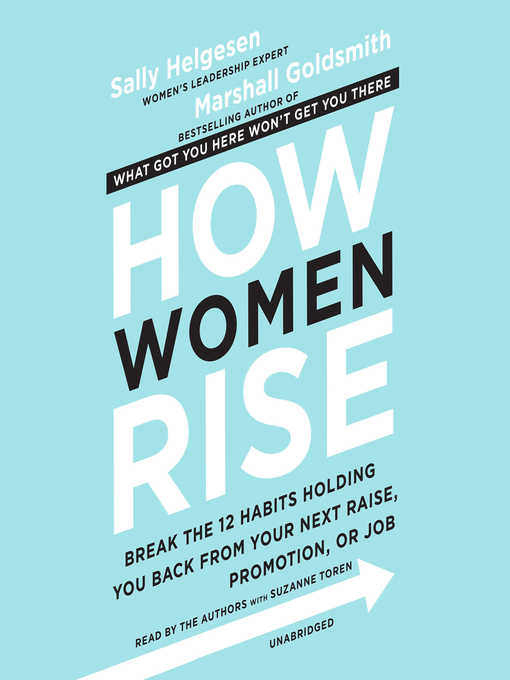
How Women Rise
Break the 12 Habits Holding You Back from Your Next Raise, Promotion, or Job
فرمت کتاب
audiobook
تاریخ انتشار
2018
نویسنده
Suzanne Torenناشر
Hachette Book Groupشابک
9781549171697
- اطلاعات
- نقد و بررسی
- دیدگاه کاربران
نقد و بررسی

Two veteran leadership experts explain how women's family culture, mental habits as shaped by their communities, and experience with pernicious workplace biases keep them from moving ahead in their careers. Narrator Suzanne Toren adds some sparkle to the journeyman performances of the authors, both sincere teachers. Besides familiar habits like needing to please, perfectionism, reluctance to self-promote, and aversion to competition, the authors discuss the many ways women inhibit their natural ability to see clearly, promote teamwork, and implement creative initiatives. Women leaders, more comfortable than men at sharing hurt, fear, and frustration, too often don't express these feelings to get ahead in cultures that respect only anger and dictatorial certitude. Both subtle and profound, these are must-hear principles for the career-minded woman. T.W. � AudioFile 2018, Portland, Maine

January 22, 2018
Goldsmith (What Got You Here Won’t Get You There) and Helgesen, a women’s leadership coach and former CEO of the Girl Scouts of the U.S.A., deliver a tiresomely downbeat guide to everything women are doing wrong in the workplace. In this diluted rehash of Goldsmith’s previous book, which highlighted mistakes people make at work, he and Helgesen attempt to outline the habits that keep women from reaching their goals. All the usual suspects appear, such as women being reluctant to claim achievements, expecting achievements to be noticed spontaneously, overvaluing expertise, failing to make early alliances, and expecting perfection of themselves. There’s little new in the book, and the presentation is unpleasantly scolding; the authors focus heavily on the tired trope that in order to be more successful, women should behave more like men. In a particularly clumsy move, the book relies heavily on examples that relate to diets and clothes. Women readers looking for ways to succeed and thrive in the workplace are unlikely to find much of value here.




دیدگاه کاربران